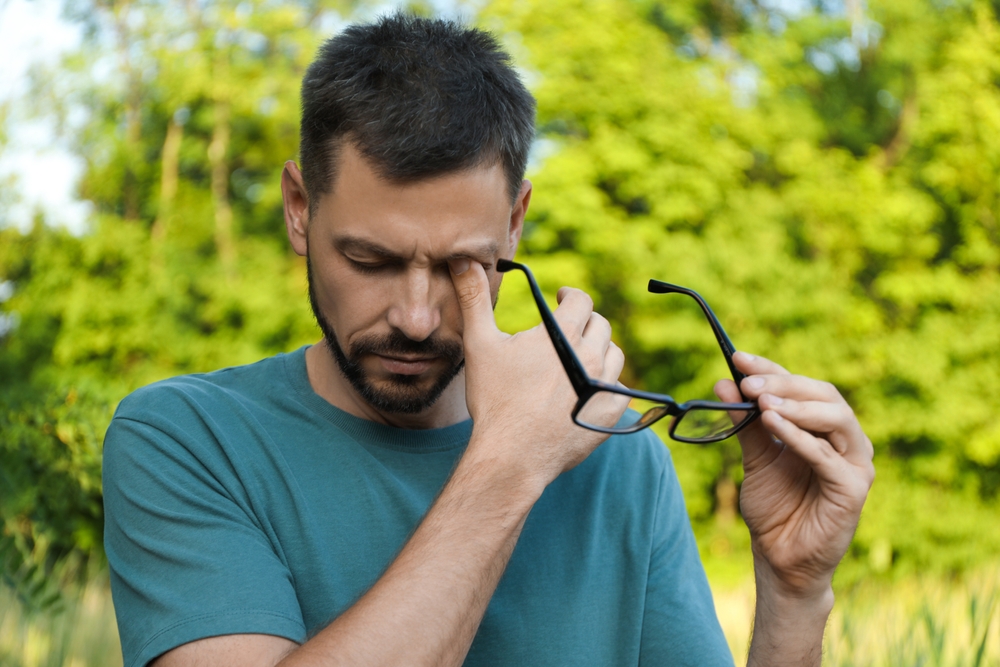
Dry eye is a common condition that affects millions of people worldwide, leading to discomfort, irritation, and even vision issues. If you’ve experienced symptoms like burning, redness, or a gritty sensation in your eyes, you might be wondering how dry eye is diagnosed. At Looksie Optometry, we take a comprehensive approach to assessing and managing dry eye, ensuring you receive the personalized care you need.
Patient History and Symptom Review
The first step in diagnosing dry eye is understanding your symptoms and overall health. Your optometrist will ask about:
Symptoms: Common symptoms include dryness, irritation, excessive tearing, blurred vision, and sensitivity to light. These can give your eye doctor important clues about whether dry eye is the culprit.
Medical History: Some conditions like autoimmune diseases, diabetes, or hormonal changes can increase your risk of developing dry eye. Your optometrist will also review any medications you take, as certain drugs can cause or worsen dry eye symptoms.
Tear Film Evaluation
A healthy tear film is crucial for maintaining comfort and clear vision. Your optometrist will evaluate the quality and quantity of your tears to check for any abnormalities. Several diagnostic tests can help assess this:
Tear Breakup Time (TBUT): This test measures how quickly your tear film evaporates after a blink. A faster-than-normal breakup time suggests poor tear quality, which could be causing your dry eye symptoms.
Tear Osmolarity Test: This test analyzes the saltiness of your tears, as higher levels of salt can indicate that your tear film isn’t functioning properly.
Schirmer Test: This test involves placing a thin strip of paper under your lower eyelid to measure the quantity of tears your eyes produce over a few minutes. A low tear production result points to dry eye.
Examining the Meibomian Glands
The meibomian glands are located in your eyelids and produce oils that help keep the tear film stable. Blocked or dysfunctional glands are a common cause of dry eye, known as meibomian gland dysfunction (MGD). During your eye exam, your optometrist may use specialized equipment, such as meibography, to view the condition of your glands and check for blockages.
Measuring Inflammation
Inflammation is a key factor in many cases of dry eye. To determine if inflammation is contributing to your symptoms, your optometrist may use InflammaDry, a test that detects elevated levels of an inflammatory marker called MMP-9 in your tears. If inflammation is present, it can guide the treatment approach to focus on reducing inflammation and restoring tear film balance.
What Happens After Diagnosis?
Once dry eye has been diagnosed, your optometrist will work with you to create a personalized treatment plan based on the underlying cause and severity of your condition. This may involve lifestyle adjustments, or prescription eye drops, and regular monitoring to ensure your eyes stay comfortable and healthy.
Schedule Your Dry Eye Evaluation with Looksie Optometry Today
Diagnosing dry eye involves a combination of tests and evaluations to pinpoint the exact cause and severity of the condition. At Looksie Optometry, we use state-of-the-art technology to provide a thorough diagnosis and offer tailored treatment solutions to help you find relief.
If you’re experiencing dry eye symptoms, schedule an appointment with Looksie Optometry to get started on the path to healthier, more comfortable eyes. Contact our offices in San Francisco, California, by calling (415) 593-5348 or (415) 778-2834 to book an appointment today.














